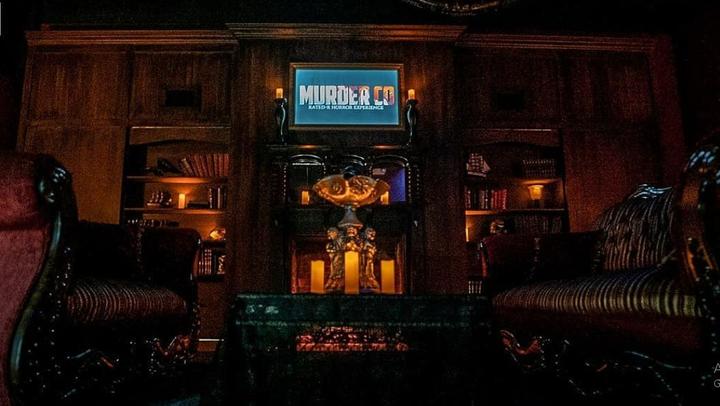Group Approaches: Just How to Team up Effectively in a Getaway Space
Teams must proactively listen to each participant's insights, appoint roles that straighten with private toughness, and preserve normal check-ins to guarantee emphasis and avoid redundancy. By cultivating an atmosphere that values communication and adaptability, groups can substantially heighten their effectiveness and success prices.
Establish Clear Communication

To facilitate clear interaction, it is vital to designate a main point of call for information circulation. This function entails summarizing searchings for and suggested approaches to make sure everyone remains on the exact same page. Furthermore, adopting a methodical strategy to discussions can protect against chaotic exchanges. Quick, focused updates from each team participant can maintain the group notified without frustrating them with information - best escape room.

Designate Duties Tactically
While clear communication establishes the structure for effective teamwork, designating roles strategically ensures that each staff member's strengths are used effectively. In a retreat space situation, the time-sensitive and complicated nature of difficulties demands an efficient strategy to task delegation. By recognizing and leveraging individual proficiencies, groups can enhance their analytical capacities and boost general performance.
First, examine the one-of-a-kind skills and characteristics of each participant. As an example, a person with a keen eye for information might stand out in discovering concealed items, while a rational thinker can be better fit to resolving puzzles - best escape room. It's just as vital to have a leader who can manage progression, handle the timeline, and make crucial phone calls when required. This duty usually requires strong organizational and social skills.
2nd, guarantee that functions are versatile and versatile. As brand-new obstacles emerge, the group must be able to pivot, reallocating tasks as needed. This flexibility helps maintain momentum and stops traffic jams that could occur because of rigid role assignments.
Eventually, a critical method to function job not just makes best use of the strengths of each group participant however also fosters a natural environment, driving the team in the direction of a successful escape.
Use Diverse Abilities
Acknowledging and harnessing the diverse skills within your group can considerably raise your efficiency in a getaway space. Each staff member brings one-of-a-kind strengths to the table, and properly leveraging these capacities can speed up problem-solving and enhance total performance. A team participant with strong logical abilities might excel at decoding intricate codes or patterns, while one more with eager observational capabilities may quickly identify hidden clues that others might forget.
Effective communication is crucial to using these varied abilities. Encourage staff member to articulate their insights and concepts promptly, making sure that all potential solutions are thought about. This comprehensive approach promotes a dynamic environment where imagination and vital reasoning browse around here can prosper. Furthermore, appointing jobs that straighten with each participant's strengths can stop traffic jams and ensure that progress is continuous.
Moreover, variety in abilities usually converts to diversity in assuming designs, which is vital in an escape room setting. While some difficulties might call for rational thinking and accuracy, others might profit from creative and association of ideas. By identifying and leveraging this variety, groups can address a more comprehensive range of challenges better, therefore increasing their possibilities of a successful escape.
Manage Time Effectively

First, allocate first mins for a fast study of the area. Recognize noticeable puzzles and divide tasks based upon staff member' staminas, ensuring that no one is still. Set interior time checkpoints to evaluate progress occasionally; as an example, goal to have half the challenges solved by the mid-point of the game. This method can help keep the group focused and protect against time from escaping undetected.
Furthermore, prevent passage vision. If a problem is taking also long, revolve employee or go on to another challenge, returning later with fresh viewpoints. Interaction is extremely important-- maintain everyone updated on fixed puzzles and continuing to be jobs to stay clear of repetitive efforts.
Finally, utilize any type of tips or ideas sparingly but purposefully - best escape room. Knowing when to request for assistance can save beneficial time. By sticking to these time monitoring principles, groups can substantially enhance their possibilities of an effective and delightful escape area experience
Debrief and Mirror
Representation is an essential facet of group development dig this and enhancement in the context of escape areas. When the challenge is finished, whether effectively or not, it is vital for the team to take part in an organized debriefing session. This process permits employee to analyze their efficiency, identify staminas, and pinpoint locations for renovation.
Begin the debrief by discussing what worked out. Highlight certain instances of effective communication, problem-solving, and cooperation. Recognizing these favorable behaviors strengthens them and urges their repeating in future difficulties.
Talk about minutes of confusion, miscommunication, or ineffective strategies. Urge an open and constructive discussion where team participants can share their viewpoints without fear of objection.
Final Thought
In verdict, successful partnership in a retreat space is predicated upon clear interaction, calculated duty assignments, the efficient use of varied skills, and see this skillful time monitoring. By creating a natural and flexible team environment, the probability of efficiently fixing puzzles and attaining the purpose of escaping the space is substantially boosted.